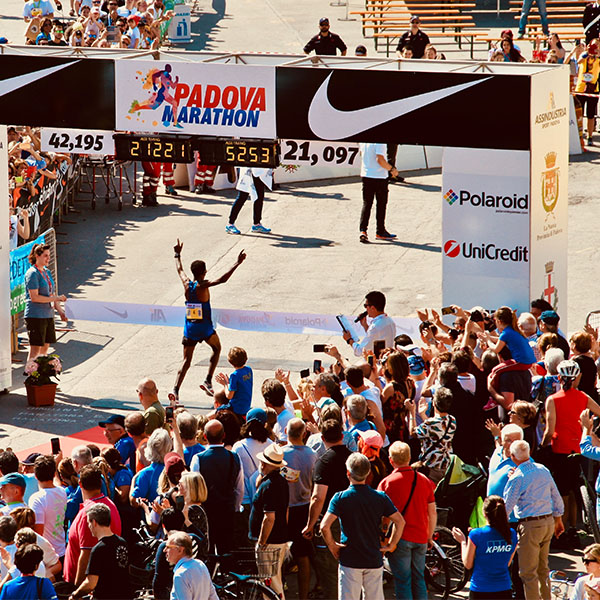There are many things that can influence the way your athletes behave apart from their own personality: their families, their friends – but also you, their coach.
You have a massive impact on your athletes’ behaviour. But is that due to your coaching success? How much they respect you? These things play a part. But at the end of the day, your practices and behaviour towards your athletes has the biggest influence on them.
An exciting piece of research has found that coaching practices can lead to positive outcomes relating to thoughts, emotions, and cognition in athletes. But how exactly does your behaviour affect your athletes?
The seven key coaching behaviours
A lot of your behaviours and practices will influence your athletes. However, the research we mentioned earlier provided a framework that focuses on seven key behaviours:
- Physical training and planning – A coach’s involvement in their athletes’ training and planning
- Technical skills – A coach’s feedback demonstration and cues
- Mental preparations – How the coach helps the athlete to perform under pressure
- Goal setting – A coach’s engagement in the setting of athletes’ goals
- Competition strategies – How the coach interacts with athletes during competition
- Personal rapport – How close, available, and understanding a coach is
- Negative personal rapport – A coach’s use of negative techniques such as fear and shouting
These coaching behaviours are highly likely to impact your athletes’ physiological and psychological outcomes, as well as their performance in competition and training. But the thing that will have the biggest effect and separate your athletes from their competitors is how well you present these seven key behaviours. This has the biggest influence of all and will help you identify what coach behavioural profile you fall under.
Which kind of coach are you?
A coach behavioural profile looks at how you perform all seven of the key coaching behaviours above. From this, you are then grouped into one of two categories that describes your coaching behaviour:
Engaged coaching profile
You fit in this adaptive coaching style if you:
- Are very involved in your athletes’ training and planning
- Have a high use of technical skills and can give your athletes good feedback on their performance
- Use a moderate amount of negative personal rapport
- Are very close to your athletes and are viewed as very available by them
- Use goal setting and competitive strategies
- Help your athletes mentally prepare for competition by providing competition strategies
- Have high engagement in your athletes’ goal setting
Less engaged coaching profile
You fit in this less adaptive coaching style if you:
- Are not as involved in your athletes’ training and planning
- Have a low use of technical skill and feedback
- Use a moderate amount of negative rapport
- Are not close to your athletes and are viewed as unavailable by them
- Make low use of goal setting and competition strategies
- Have low engagement in your athletes’ goal setting
How do these coach behaviour profiles impact athletes?
Research found that out of these two coach behavioural profiles, the engaged profile was seen to have a closer coach-athletes relationship.
Coach behavioural profiles act as a stimulus. This makes a big difference in athletes’ coping strategies when they face competition, which is why they seem to prefer this style.
Why? One reason is that it encourages them to use task-oriented coping. This means that they are better able to control their thoughts and relax before competition. They also feel more able to seek support from coaches, for example by venting about unpleasant emotions, which not only increases personal rapport but helps with the athletes’ mental preparation. They are much more able to face competition and perform under pressure when they've let their negative emotions out.
Athletes who experienced a less engaged coaching profile had the worst outcomes in competitions. They were less likely to vent unpleasant emotions to coaches, leaving them to manifest within them, consequently having a negative impact on their emotional control and performance. This less adaptive coaching style hinders athletes’ performance in competition and can have a maladaptive effect on the athlete’s behaviour.
A lack of social support has a negative impact on athletes’ coping strategies, especially before a competition. This causes lower thought control and logical analysis in comparison to the engaged coaching profile, causing athletes to struggle more when competing.
So, what does this mean for you?
It’s pretty clear that you should want to develop an engaged coaching profile. But how? Here are some strategies:
- Give your athletes competition coping strategies. This could be teaching them mental rehearsals or practising positive imagery with them to help when competing.
- Provide your athletes with strong social support. You could book regular meetings with them to catch up one-to-one for example.
- Make sure you are highly involved in your athletes’ sporting lives. This could mean turning up to every training session early and giving regular feedback to your players, so they know you care.
- Encourage your athletes to vent their unpleasant emotions to you. You can promote this by using open-ended questions in relation to their emotions. For example: “How are you feeling?”, or “What do you think triggered this emotion?”.
Final thoughts
While there are many different ways to approach coaching your athletes, social support should be the core of it.
As we have seen, athletes who have better relationship with their coaches are more likely to open up and therefore have better coping strategies when it comes to competition and high-pressure situations. It is important to engage in your athletes’ training and be present in their planning as not only will it build their respect for you, but also build your relationship.
Your behaviour has a key impact on how well they perform in competition so its important you ask yourself: what coaching behaviour profile do you fit into?





